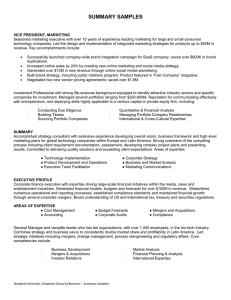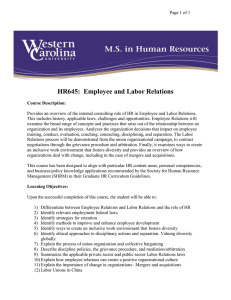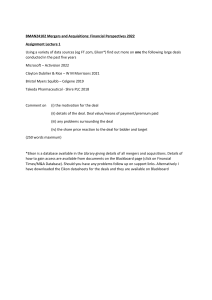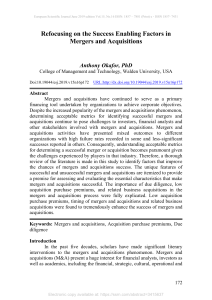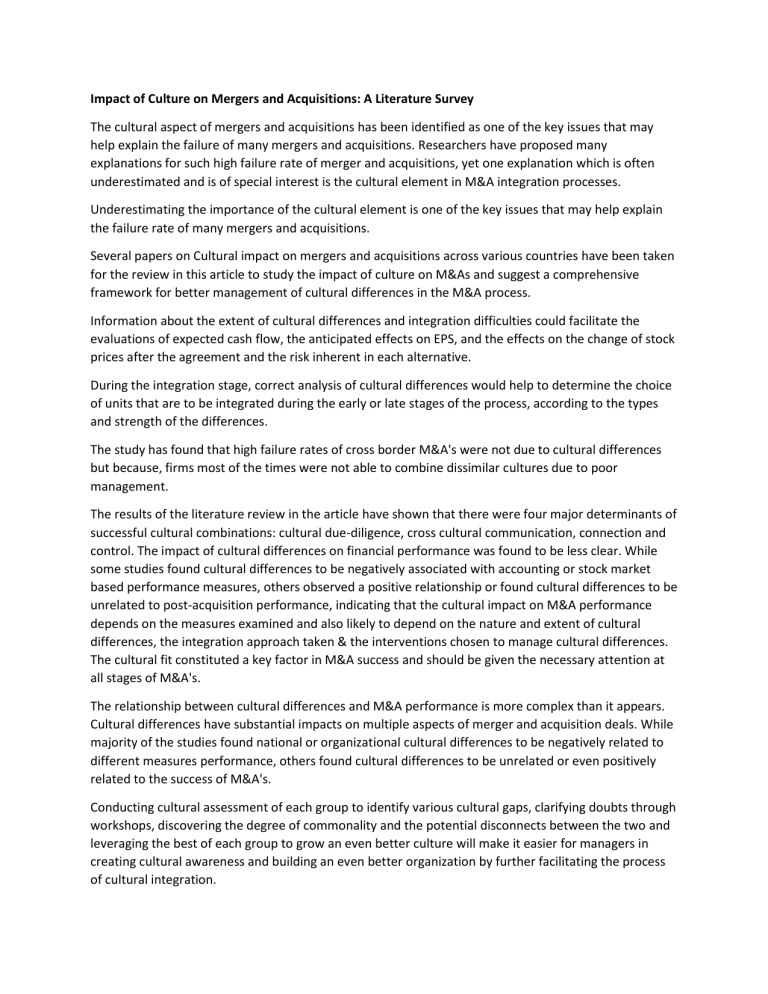
Impact of Culture on Mergers and Acquisitions: A Literature Survey The cultural aspect of mergers and acquisitions has been identified as one of the key issues that may help explain the failure of many mergers and acquisitions. Researchers have proposed many explanations for such high failure rate of merger and acquisitions, yet one explanation which is often underestimated and is of special interest is the cultural element in M&A integration processes. Underestimating the importance of the cultural element is one of the key issues that may help explain the failure rate of many mergers and acquisitions. Several papers on Cultural impact on mergers and acquisitions across various countries have been taken for the review in this article to study the impact of culture on M&As and suggest a comprehensive framework for better management of cultural differences in the M&A process. Information about the extent of cultural differences and integration difficulties could facilitate the evaluations of expected cash flow, the anticipated effects on EPS, and the effects on the change of stock prices after the agreement and the risk inherent in each alternative. During the integration stage, correct analysis of cultural differences would help to determine the choice of units that are to be integrated during the early or late stages of the process, according to the types and strength of the differences. The study has found that high failure rates of cross border M&A's were not due to cultural differences but because, firms most of the times were not able to combine dissimilar cultures due to poor management. The results of the literature review in the article have shown that there were four major determinants of successful cultural combinations: cultural due-diligence, cross cultural communication, connection and control. The impact of cultural differences on financial performance was found to be less clear. While some studies found cultural differences to be negatively associated with accounting or stock market based performance measures, others observed a positive relationship or found cultural differences to be unrelated to post-acquisition performance, indicating that the cultural impact on M&A performance depends on the measures examined and also likely to depend on the nature and extent of cultural differences, the integration approach taken & the interventions chosen to manage cultural differences. The cultural fit constituted a key factor in M&A success and should be given the necessary attention at all stages of M&A's. The relationship between cultural differences and M&A performance is more complex than it appears. Cultural differences have substantial impacts on multiple aspects of merger and acquisition deals. While majority of the studies found national or organizational cultural differences to be negatively related to different measures performance, others found cultural differences to be unrelated or even positively related to the success of M&A's. Conducting cultural assessment of each group to identify various cultural gaps, clarifying doubts through workshops, discovering the degree of commonality and the potential disconnects between the two and leveraging the best of each group to grow an even better culture will make it easier for managers in creating cultural awareness and building an even better organization by further facilitating the process of cultural integration.


